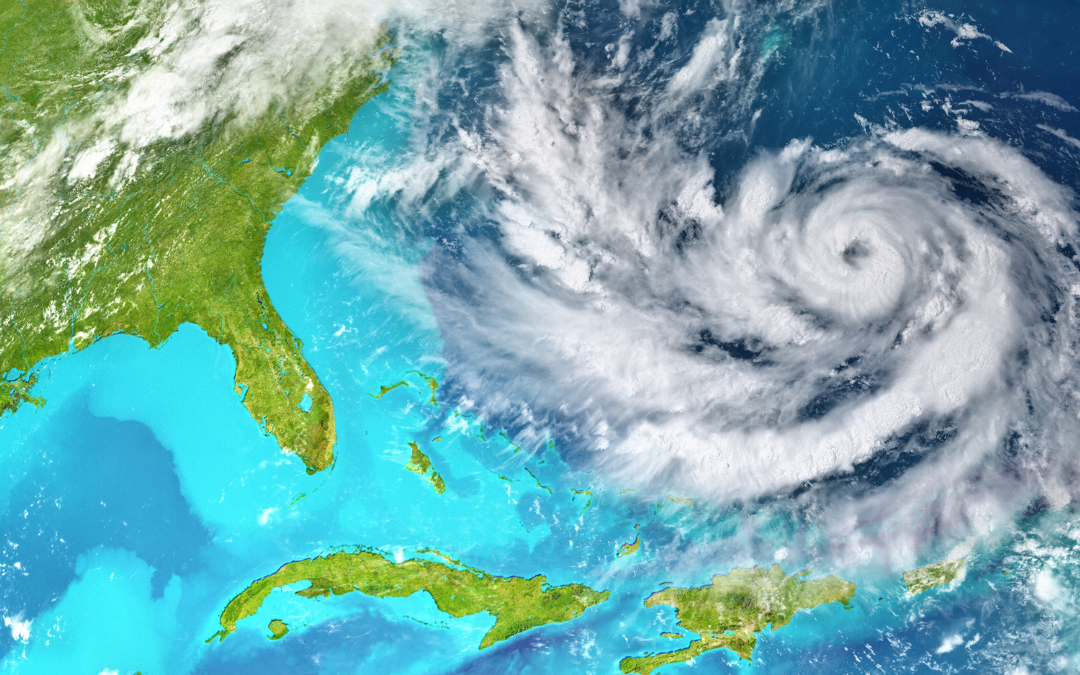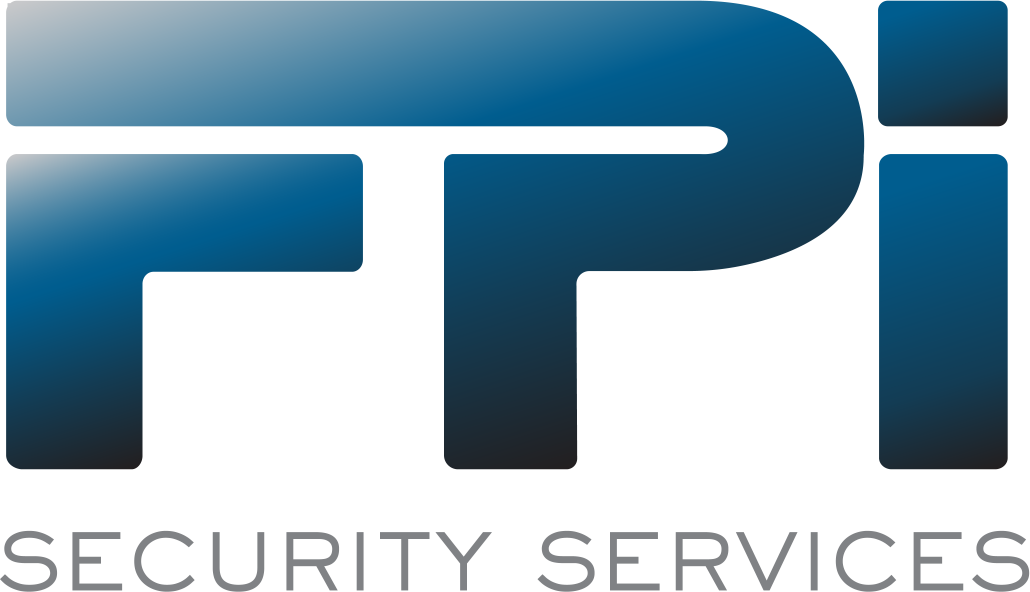
There is a picture of a satellite image of the florida that is green surrounded by ice blue waters. To the right there is a circular white cloud approaching the state.
Blog Post
Hurricane Preparedness in Florida: Keeping your Family Safe
Florida, known primarily for its beautiful beaches and abundant sunshine, is undeniably a state that bestows a remarkable quality of life upon its residents. However, Florida's geographic location makes it prone to hurricanes, which can pose substantial threats, regardless of where one may live in the sunshine state. In this blog post, we'll explore crucial tips and precautions for ensuring safety during a hurricane in Florida, with a particular emphasis on preparing your family and home.
Stay Informed on Weather Announcements
The journey to hurricane preparedness begins with knowledge. In the sunshine state of Florida, where tropical storms and hurricanes are a seasonal reality, residents understand the importance of staying informed. Hurricane season usually runs from June 1st to November 30th and requires Florida residents to pay attention to weather updates and forecasts for any incoming tropical storms or hurricanes that could develop in the near future.
By monitoring local news channels and the National Hurricane Center (NHC), Floridians receive a lot of detailed information about different weather patterns making their way to Florida. Tuning in to these trusted sources provides a lifeline of knowledge that empowers residents to make informed decisions to keep their assets and family safe and secure. The NHC stands as an invaluable resource, offering detailed insights into the trajectory, category, and potential impact of approaching hurricanes. Understanding the categories of hurricanes, ranging from Category 1 to Category 5, is crucial, as each category has a different level of destructive possibilities. Without this information, residents would have a challenging time making decisions regarding their own properties and personal safety.
Create a Hurricane Emergency Kit
Creating an emergency kit is a fundamental aspect of hurricane preparedness. As Florida residents know all too well, hurricane season can bring about unpredictable disruptions to daily life. Therefore, being equipped with an emergency kit is not just advisable; it's a necessity to keep you and your loved ones safe as the storm passes through and normal life returns.
Imagine your emergency kit as a lifeline, that will be able to sustain your family for several days if the need arises. Within this kit, there are key things needed. First are non-perishable foods. These will be used to keep the family fed, if in the case that having access to regular foods, or even cold/frozen foods become unavailable. Some examples of non-perishables that should be included in the kit are:
- Canned goods such as: beans, fish, vegetables
- Dried fruits or nuts
- Crackers or popcorn
- Grains such as rice and more!
Stocking up on supplies is crucial when a hurricane or storm is approaching your area. Stores, at times, run out of essential supplies quickly, therefore it’s imperative to try and stock up ahead of time on different supplies including a manual can opener and cooking tools that don't rely on electricity. Having a lot of water handy is an important aspect that is needed for survival during a hurricane or tropical storm. Also, flashlights, with a supply of different batteries, are very crucial to have light if the power goes out with the storm. In addition to that, one must prepare a first aid kit that will be able to tend to minor injuries, such as cuts, scrapes and other things that can be addressed quickly while the storm passes before heading to a hospital if the injury needs to be tended by medical professionals.
Inside your emergency kit, one should also have important documents, such as identifications of all family members, insurance policies, and medical records if possible. These documents are not just paper; they are lifelines to critical information in times of crisis should one need access to them. If any family members require prescription medications, prepare to have those in supply as well in case the duration of the storm exceeds the estimated amount of time. Don’t forget to ensure your pets are secure as well, by making sure they have enough food and water as well.
Have an Evacuation Plan
Florida's hurricane season brings with it the potential for severe weather conditions, and evacuation orders can be issued with little notice. Thus, it's vital to prepare for this possibility ahead of time. In Florida, some areas are more prone to flooding and storm surges than others, making evacuation necessary. To avoid flooding and being stuck, one should know how to evacuate safely. First, it’s important to familiarize yourself with local evacuation routes and nearby shelters, as these will be the primary resources during a hurricane / tropical storm emergency. If you have a vehicle, make sure it's in good working condition and topped up with fuel in the event that you have to leave and find safety for you and your loved ones.
Secure Your Home
Securing your home is another vital component of hurricane preparedness. To protect your loved ones and home, one can begin by reinforcing all windows and doors. Utilizing hurricane shutters or plywood can help safeguard your home against the powerful winds that these storms bring. These preparations go a long way in minimizing potential damage to your assets.
Another vital aspect of hurricane preparedness is tending to landscaping and outdoor objects. Meaning, by trimming trees to reduce the risk of branches becoming projectiles during strong winds and securing outdoor items. These can be large or loose items, such as lawn furniture or gardening tools, these, if caught in the wind of the storm, can cause damage.
In flood-prone areas of Florida, preventing water damage is an important step for hurricane preparation. By elevating electrical systems and appliances to higher ground, this can help protect your assets from damage. By fortifying your home, taming your surroundings, and protecting against water damage, you're taking crucial steps toward hurricane preparedness in Florida.
Safety During the Hurricane
As the hurricane makes landfall in your area, it’s important to stay indoors and away from windows, as strong winds can cause them to shatter. In the event of a power outage, opt for flashlights over candles to prevent fires. Ensure that your emergency kit, complete with essential supplies, is readily accessible, along with important documents like identification, insurance papers, and medical records. During the storm, staying informed through a battery-powered weather radio or a trusted news source can provide critical updates and guidance on the hurricane's progression.
The Aftermath - Recovery and Caution
In the aftermath of a hurricane, your safety is still top priority, and it’s important to exercise patience and caution. If you evacuated, wait for official announcements before returning home; Once back, remain vigilant and avoid hazards such as downed power lines, standing water, and debris. Contact your family and friends to let them know you're safe, and consider checking on the well-being of others, particularly vulnerable neighbors.
In Florida, hurricane preparedness is a shared responsibility that extends beyond the storm's immediate impact. By following these guidelines and staying informed, you contribute to your own safety and the well-being of your community. Remember, preparation is the key to ensuring your loved ones remain safe during hurricane season in the Sunshine State.
Hurricane Sources
National Hurricane Center (NHC) - Part of the National Weather Service, NHC provides comprehensive information about hurricanes, including forecasts, tracking, and storm surge predictions.
Federal Emergency Management Agency (FEMA) - FEMA's website provides information on disaster preparedness, federal assistance programs, and resources for hurricane survivors: FEMA
American Red Cross - Florida Region - The American Red Cross is a key organization providing disaster relief and recovery assistance.
FloridaDisaster.org - This website offers a wide range of resources, including evacuation maps, emergency contacts, and preparedness guides.
Ready.gov - The official website of the U.S. Department of Homeland Security offers comprehensive information on disaster preparedness, including hurricanes.
Florida Power & Light (FPL) - FPL's website provides real-time updates on power outages during hurricanes and storm restoration efforts.
Florida 511 - Florida's official source for real-time traffic and travel information
